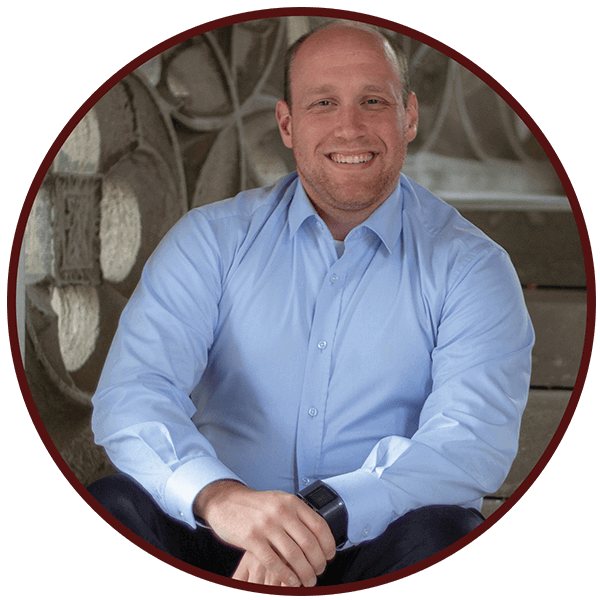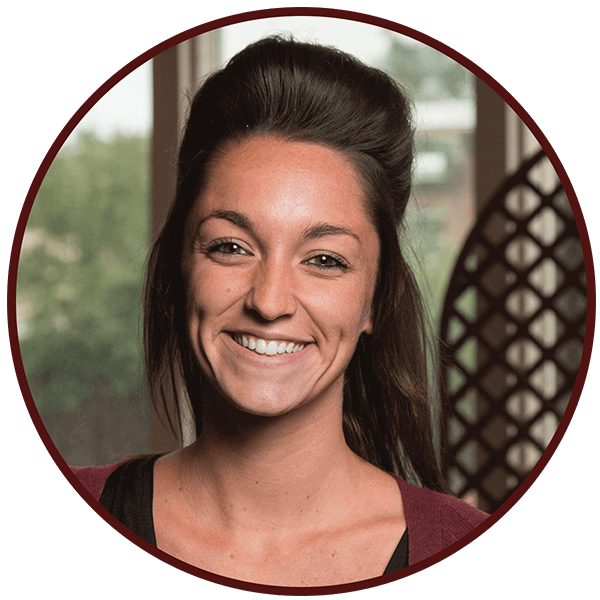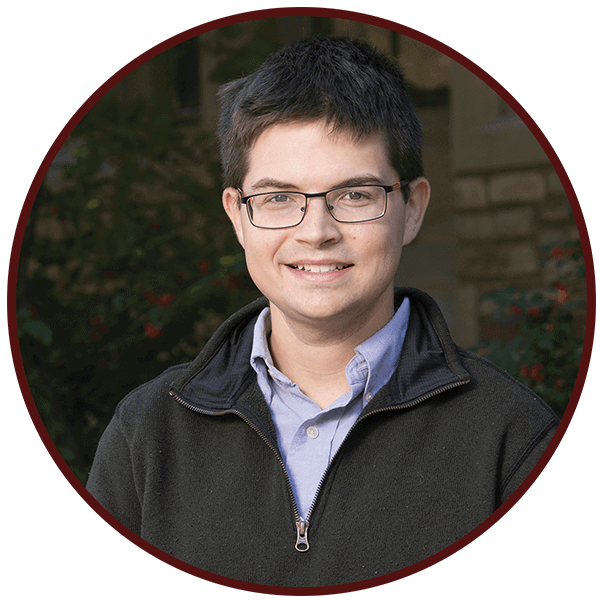
Concordia Seminary Newsroom
The Journey to Seminary life
Three students share their individual paths

By Melanie Ave
Others from first and even second careers. They are single. They are married. They are young. They are middle age.
Dozens are here from other countries as they seek to grow in their knowledge of the
Gospel and Lutheran doctrine to better serve their churches and communities back home.
No matter their differences, Concordia Seminary, St. Louis students all have one thing in common: They have answered God’s tug on their hearts and are now preparing for vocational ministry. Hear from three of our first-year students as they explain their individual journeys to the Seminary and why they have said, loudly, boldly: “Here am I! Send me.”
From West Point to the Seminary

MICHAEL WILKE grew up in Spring, Texas, a suburb of Houston, the son of a cancer center nurse and Lutheran high school teacher.
He attended Trinity Lutheran School through eighth grade and enrolled at Concordia Lutheran High School in Tomball. It was there during his freshman year that he met a representative from the United States Military Academy — better known as West Point. Michael became intrigued by the thought of going to West Point.
“I went home and told my mom,” he remembers. “She said, ‘No. You’re not going.’” His father was a little easier to convince. So Michael kept his focus and applied to West Point. To make his mother happy, he also applied to Concordia University Chicago, River Forest, Ill. After high school graduation he and his family visited West Point in June 2009. They stood on the steps of the chapel and looked out at the picturesque view of the Hudson River. “Nature, history, everything was all together in this place,” he remembers. His mom looked at him and said, “I can see why you want to come here.” Finally, it was settled. He was going to West Point.
He enrolled and for the next four years, he was challenged academically, mentally and physically.
“They allowed me do things I could not have done in any other college,” he says. He worked one-on-one with an officer who oversaw 30 soldiers, observing the officer’s leadership style as he explored his own. He traveled to Africa and witnessed a similar experience with a French army officer.
In May 2013, he graduated with a bachelor’s degree in French and human geography and soon thereafter began his five years of required active duty at Fort Sill in Lawton, Okla. Afterward, he was sent to Camp Casey in South Korea, where he served as a fire support officer. He later served in Iraq.
It was during his time in Iraq that he put together his application for the Seminary. “It had been something that was always on my mind,” he says. Through the years he had often heard from others: “You would make a good pastor.” “It came from every direction,” he says. A part of him could see it too. Michael made up his mind to pursue pastoral ministry instead of a military career. It was not an easy decision.
His advice to others who may be considering pastoral ministry? “You need to be responsible and take the time to discern whether this is what you are supposed to do,” he says. “You should be doing a lot of praying. You should be doing a lot of devotional time.”
It was those things that moved Michael forward on his pastoral journey. With his Seminary application to pursue a Master of Divinity approved, he served his final Army active duty days at Fort Lewis near Tacoma, Wash. By June 2018, he was on the Seminary campus, officially enrolled in summer Greek and taking the first steps to being a pastor.
“I’ve seen the impact that good theology and proper pastoral care can have on somebody,” Michael says. “I know when I was in my periods of greatest vulnerability and internal struggle, the
people who have helped me out the most have been pastors.”
Studying at West Point and being in the Army was great preparation for ministry, Michael says. He learned counseling. He learned discipline. He learned leadership. He learned how to be responsible for the health and well-being of others.
“I’ve done a lot of introspection,” he says. “I asked myself, ‘Do I have what it takes to do that?’ I think that I do. Ultimately, it’s just not a good idea to go against your conscience.”
From college student to deaconess student

ALEX SHICK is studying for her Master of Arts with a Spiritual Care Major to become a deaconess. She grew up going alone to a church down the road from her house. “They really took me in,” she remembers of St. Mark Lutheran Church in Muskegon, Mich. “That is where I got interested in the ministry.”
During her summers in high school, she went to Camp Geneva, a Christian summer camp in western Michigan, and eventually became a counselor there. It had a huge influence on her faith. “I think God has given me a servant’s heart,” she says. “No matter what I do with my future, I definitely want to do something in service.”
After high school graduation, she served on a short-term mission trip to Poland where she taught English at a Bible camp. “The kids were great,” she says. “I learned a lot.”
She enrolled at Concordia University Ann Arbor, Mich., and studied criminal justice and Christian thought. Her original goal was to serve in the military, but a bone disorder prevented her from pursuing that career path. She is now hoping to serve as a chaplain in a correctional facility after she and her husband, Samuel, a first-year seminarian, graduate.
In college, she served three internships, including two in state prisons and one in a federal prison, where she taught a re-entry program for inmates to help them acclimate to life after prison.
“I loved the ministry I was able to do there,” she says. “As a prison chaplain you only come in contact with people who reach out to you. I liked being a resource for people who otherwise wouldn’t have one. A lot of them spend time in prison reading the Bible over and over again.”
She offers this advice to others considering the ministry: “It’s a big commitment. It’s not youth group every night. There’s a lot to be gained. There’s a lot to be sacrificed. Make sure that it is what you are being called to and make sure that you are dedicated to it.”
From journalist to seminarian

A native of Toledo, Ohio, MICHAEL STAINBROOK taught himself to read using the sports section of the Toledo Blade. He loved sports although he soon learned that while he was good at reading about them, he was not good at playing them.
The first-year Master of Divinity student grew up the son of a firefighter father and Lutheran school bookkeeper mother. Attending a Lutheran school from kindergarten through eighth grade, he often heard these words from those who knew him: “You should be a pastor.”
Although he appreciated the encouragement from others, Michael chose to go into sports journalism. He enrolled at Ohio University and pursued his passion, writing for his college newspaper and eventually becoming its sports editor.
After graduation, and newly married, he and his wife, Sarah, moved to Chicago so she could earn a Ph.D. in biology from Northwestern University. They were thrilled to be in Chicago. Michael landed a job at the Chicago Tribune as a part-time sports writer. He was later hired full-time as a sports editor for the Tribune’s Pioneer Press publications for Chicago’s north and west suburbs where he was responsible for making assignments and editing articles for 34 weekly newspapers.
As he kept busy in his journalism career and his wife completed her doctorate, he could still hear the quiet whispers from others about his predisposition for ministry. “They never really went away,” he says. Two years ago they resurfaced as he and his wife weighed where she should go for her post-doctoral work since the couple would undoubtedly have to leave Chicago. St. Louis was one option, and Michael remembered Concordia Seminary was located there. “Maybe now is a good time to check it out,” he thought.
Everything soon seemed to fall into place. His wife was accepted at the Danforth Plant Science Center in St. Louis and Michael, at the Seminary. “I still love journalism quite a bit,” he says. “I didn’t come here to run away from journalism at all. I love it as much as I ever have.
“I just feel God has called me to be in a different place, at a different time, using my skills in a different way. Just because God has given you a skill set does not mean that there is only one application for that skill set,” he says. “I sort of figured that with the skills God gave me — a passion for the truth, a passion for telling stories, a passion for speaking with people, connecting with people — I thought that journalism was the path. Now that I’m at the Seminary I feel absolutely God has a plan to use those skills in vocational ministry. If you feel God has given you a skill, be faithful wherever He leads you. God knows best how to use the gifts He has given you.”
Melanie Ave is communications manager at Concordia Seminary, St. Louis.